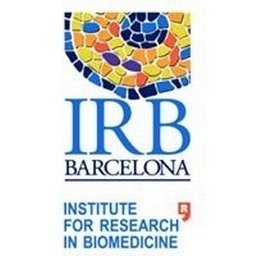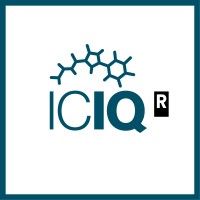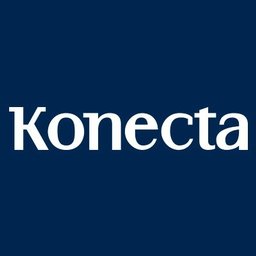The Barcelona Institute for Global Health (ISGlobal) is a cutting-edge institute addressing global public health challenges through research, translation into policy and education. ISGlobal has a broad portfolio in communicable and non-communicable diseases including environmental and climate determinants, and applies a multidisciplinary scientific approach ranging from the molecular to the population level. Research is organized in five programs: Climate, Air Pollution, Nature and Urban Health; Environment and Health over the Lifecourse; Global Viral and Bacterial Infections; Malaria and Neglected Parasitic Diseases and Maternal Child and Reproductive Health. ISGlobal is accredited with the Severo Ochoa distinction, a seal of excellence of the Spanish Science Ministry.
In addition to the public health, the epidemiology, and the clinical disciplines, ISGlobal drawn on other disciplines, as health economics, citizen science or socioantropological research, to adopt a cross-cutting approach to poverty related diseases in low- and middle-income countries and global health.
The Study Appraising the Critical Role of prognostic Biomarkers in the Assessment and Triage of sick African newborns: Advancing a point-of-care device based on sTREM-1 towards CE marking and implementation – ACROBAT Newborns (https://acrobatnewborns.eu/) is an EDCTP3 funded multisite project that seeks to evaluate and advance the development of the B-Triage device, designed for triage and risk stratification of sick neonates in hospitals across Sub-Saharan Africa. The study seeks to assess the prognostic performance of the device's Minimal Viable Product (MVP) in real clinical settings, measuring its ability to identify and prioritize critically ill newborns regardless of the cause. Additionally, the project aims to compare the biomarker sTREM-1—central to the device—with a broad range of other biomarkers and existing prognostic algorithms. The project includes further components: Health economics, socio-behavioral research, health impact assessment, design of an industrial prototype and an app, regulatory pathways and a business plan. The socio behavioural research will focus on assessing the usability, acceptability and feasibility of our device in a relevant environment to inform commercial prototyping, risk analysis, and implementation.
The project involves several Institutions, including ISGlobal as the coordination Institution, Fundação Manhiça (Mozambique), London School of Hygiene & Tropical Medicine (UK); Haramaya University (Ethiopia); Centre de Recherches Medicales de Lambaréné (Gabon), Eberhard Karls Universitaet Tuebingen (Germany); Global Health Uganda LTD (Uganda); Hutzpa Consulting and Innovation Lab LTD (Nigeria); Spotlab (Spain) and BIOECLOSION SL (Spain).
The chosen candidate for this position will be integrated in the WP7: Usability, Acceptability & Feasibility, and will focus on the objective 3: To assess usability, acceptability and feasibility of our device in a relevant environment to inform commercial prototyping, risk analysis, and implementation. The candidate will work in collaboration with the senior social scientist, the projects’ partners based in Ethiopia, Gabon, Mozambique and Uganda and wider consortium members.
WHAT WE ARE LOOKING FOR
ISGlobal is seeking an outstanding and highly motivated post-doctoral fellow with a background on anthropology, socio-behavioural sciences, qualitative research and/or mixed-methods. The candidate will work within the Malaria and Neglected Parasitic Disease group. The candidate will have a central role in the design and implementation of the socio-behavioural component of the ACROBAT study.
KEY RESPONSIBILITIES
- Coordinate the social sciences activities, together with the senior social scientist
- Support the cross-country socio-behavioural research and collaborate with those leading the clinical trials in all implementation countries to help with the achievement of projects deliverables and milestones
- Design and develop the socio-behavioural research protocol, the data collection guides, the community engagement plan, the analysis approach and the dissemination strategy, together with the social sciences researchers of our partners in Ethiopia, Gabon, Mozambique and Uganda
- Capacity building according the sites´ needs
AUXILIAR TASKS
This job description reflects the present requirements of the post but may evolve at any time in the future as duties and responsibilities change and/or develop providing there is appropriate consultation with the post-holder.
This job description is not a definitive or exhaustive list of responsibilities but identifies the key responsibilities and tasks of the post holder. The specific objectives of the post holder will be subject to review as part of the individual professional assessment process.
SKILLS
- Advanced proficiency in English (spoken and written)
- Excellent writing and presentation skills, with the ability to produce clear, high-quality technical reports and scientific manuscripts.
- Strong organizational and time management skills, with the ability to manage multiple tasks and meet deadlines.
- Proven capacity to work independently and collaboratively within diverse, multidisciplinary research teams.
- Solid methodological expertise in qualitative and mixed-methods research.
- Experience in reviewing and revising qualitative research tools and transcripts.
- Strong interpersonal and communication skills, with a flexible and open-minded approach to teamwork and new ways of working.
The post holder will adhere to ISGlobal principles contained in People management policy, including Equity, diversity and health safety. The post holder will respect, and be accountable to ensure ISGlobal policies and procedures.
TRAINING AND EXPERIENCE / QUALIFICATIONS
- Advanced university degree (Master degree) in a relevant discipline within global health, social sciences, clinical research or medical anthropology.
- PhD on issues related with global health. The thesis should include a qualitative component or a mixed-methods approach.
- At least 2 years’ experience working on global health with qualitative or mixed-methods approaches. Having worked in acceptability and feasibility studies and/or clinical trials in LMIC is an asset.
SPECIFIC REQUIREMENTS
- Experience in designing, implementing and conducting qualitative and mixed methods research
- Experience in team coordination
- Experience in developing data collection tools, such as interview guides or survey questionnaires
- Familiarity with qualitative data analysis software (e.g. Nvivo, Dedoose, Quirkos) for data analysis
- Strong analytical skills
- Experience in developing reports and scientific manuscripts
- Experience in field research in LMICs
LANGUAGE LEVEL
- Proficiency in English.
- Portuguese is an asset
CONDITIONS
- Duration: 4 months
- Starting date: 15th of September 2025
- Contract Type: Part time (50%)
- Salary: Postdoc C (32.367€ gross annual)
HOW TO APPLY
Applicants must fill in the request form and attach the CV and a Cover Letter. Each attached document must be named with the candidate name and surname.
The receipt of applications will be open until 2nd of August 2025.
The interviews could be placed during the reception of candidatures period.
Diverse candidatures are encouraged, that includes: gender, race, ethnicity, religion, age, sexual orientation, physical abilities, and political views.
SELECTION PROCESS
The selection process is designed in two phases:
1- Interview phase of a technical nature, with the team that requires the incorporation. To assess the person's skills and CV.
2 - Meeting with HR with the finalist(s) to finish assessing the profile and discuss contractual and institutional issues.
If needed any technical test could be passed. A Psychological Competency Evaluation Test will be required for the structural or transversal positions.
In accordance with the OTM-R principles, a gender-balanced recruitment panel is formed for every vacancy at the beginning of the process. After reviewing the content of the applications, the panel will start the interviews, with at least one technical and one administrative interview. A profile questionnaire as well as a technical exercise may be required during the process.
In ISGlobal we are committed to maintaining and developing a work environment in which the values and principles of our organization are respected and equal opportunities between women and men be promoted in each of the areas in which we operate, not tolerating discrimination based on criteria such as age, gender, marital status, race, ethnicity, functional diversity, political leanings, religion, sexual orientation, gender identity or gender expression.
We confirm our commitment towards the value of the diversity of our staff and student population and seek to promote peace, equity, diversity and inclusion as essential elements in contribution to improving health worldwide.







